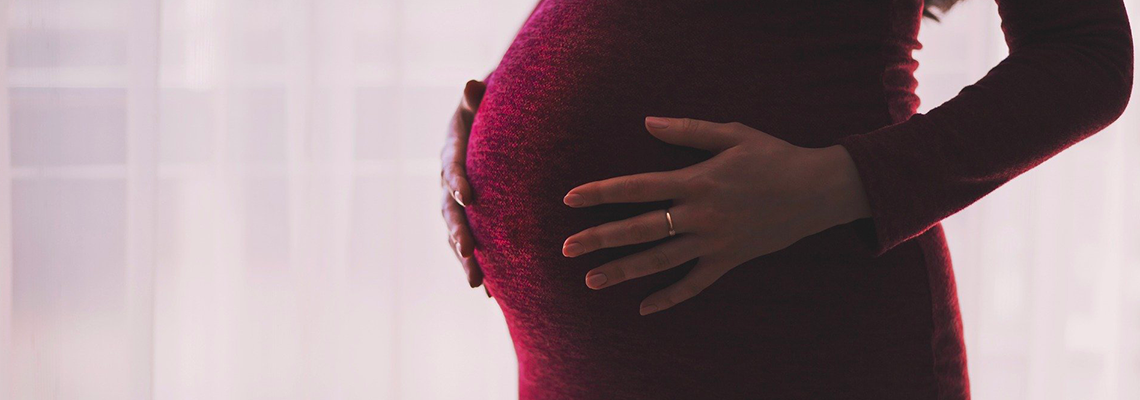Disease factsheets
Pregnancy and the festive season
The festive season is approaching and with it the prospect of family meals to celebrate Christmas and the New Year. But if you’re a mum-to-be this year, how can you treat yourself without putting your baby at risk?
Don’t panic: it’s perfectly possible to indulge while you’re pregnant, and we’ve got some advice for you.
Glass of champagne? No thanks!
“Zero alcohol while pregnant” continues to be the order of the day, even during the festive season. Alcohol enters the bloodstream of the still immature and developing foetus, and is toxic to the baby. What’s the risk? Foetal alcohol syndrome, which can impact your baby’s cognitive and neurological development.
However, there are non-alcoholic drinks out there which mimic sparkling wines, or why not try a fizzy ginger beer? It’s not alcoholic and the ginger can also help reduce nausea. Or if you have a juicer, invent your own fresh fruit cocktail that you can enjoy when raising a glass with your guests!
A slice of foie gras? Yes, but...
... only if it’s cooked (not part-cooked), and make sure it’s from a jar or tin, because then it will have been heated to more than 100°C, which reduces the risk of listeria (bacteria found in deli meats and cheeses, and which can be dangerous during pregnancy). You should therefore avoid homemade foie gras. It’s also worth bearing in mind that this is a very high-calorie food, and should therefore be consumed in moderation.
Some seafood? Yes, with some conditions
Again, caution is the order of the day! You can safely eat any seafood that’s been cooked (provided that it has been kept properly refrigerated, of course), so go ahead and enjoy prawns, shrimp, langoustines – and lobster too, why not! Unlike foie gras, this is a starter that is low in calories (as long as you go easy on the butter or mayonnaise), and will supply you with lots of nutrients and minerals. It’s bad news on the homemade mayonnaise though – this year, swap it for a mass-produced version to avoid the risks associated with raw eggs. And you should steer clear of raw oysters or sea urchins... The same goes for raw fish such as sushi, tartare dishes and raw smoked fish. It’s worth noting that you can sometimes find pasteurised smoked salmon, and this is fine to eat while pregnant as long as it has been kept properly refrigerated.
How about a stuffed capon or baked scallops? Absolutely yes!
No problems with this course, you can tuck right in!
The traditional stuffed poultry dishes that dominate family celebrations at this time of year are all okay for pregnant women (provided that they are perfectly cooked through). Choose your piece carefully: while fillets tend to be lean, the stuffing is generally fattier.
Fish is also a great option. Oily fish is high in fatty acids, which are very important for the development of your baby’s neurological system (limit your consumption to two portions per week).
Some cheese? Yes, but...
...again, you need to be cautious. Opt for cheeses made with pasteurised milk or hard cheeses (with no rind). If you’re a fan of the (excellent) truffle brie – which, like all bloomy rind cheeses is to be avoided during pregnancy – then try a truffle pecorino! To maintain a healthy diet, limit your bread intake and have something green (a green salad or endive salad perhaps) with your cheese.
A little dessert? Yes!
Ice-cream yule logs – the stars of the Christmas dessert table – are absolutely allowed. As always, make sure you keep everything properly frozen or refrigerated.
And be careful with logs which contain buttercream or Bavarian cream, and with desserts that incorporate mousse made with raw eggs, as these can pose a risk of salmonella.
You could also opt for a less conventional, completely fresh dessert: exotic fruits braised, roasted or served in a fruit salad, perhaps with a sorbet on the side.
Aiding digestion
After enjoying a festive meal, which is important for wellbeing, opt for herbal teas, preferably organic, such as fennel or one specially formulated to aid digestion, and cut back on sparkling water which can cause heartburn.
We’d also recommend wearing comfortable clothes that don’t cut into your beautiful rounded belly.
And why not keep the family get-together going with a walk to promote good digestion?
What if I have gestational diabetes?
Gestational diabetes shouldn’t stop you from enjoying festive meals, but make sure you stick to portion sizes in line with the recommendations of your doctor, endocrinologist, midwife or dietitian.
Watch out for hidden sugars in fizzy drinks, fruit juices, pre-dinner snacks, etc., as these will increase your blood sugar.
Continue to monitor your blood glucose levels and don’t hesitate to call a professional if you need to.
What if I’m breastfeeding?
Once your baby arrives, you no longer need to worry about all the recommendations regarding food-related risks. The only rule that remains in place is zero alcohol. It’s important to make sure you have plenty to drink while breastfeeding (around 1.5 litres a day) and there are some other ways you can boost your milk production such as non-alcoholic beer, and fennel, dill or special breastfeeding teas.
In fact, one of the advantages of breastfeeding is that you can offer your baby a wide range of flavours through a varied, balanced diet.
If you have any more questions after reading these recommendations, your midwife can give you additional advice at a prenatal appointment or during a birth preparation class.
We wish you a Merry Christmas and a Happy New Year!
Delphine Derne and Irène Gabrielli (midwives – MONACO)
